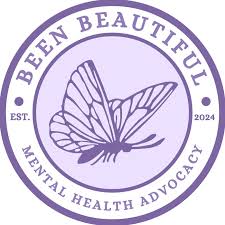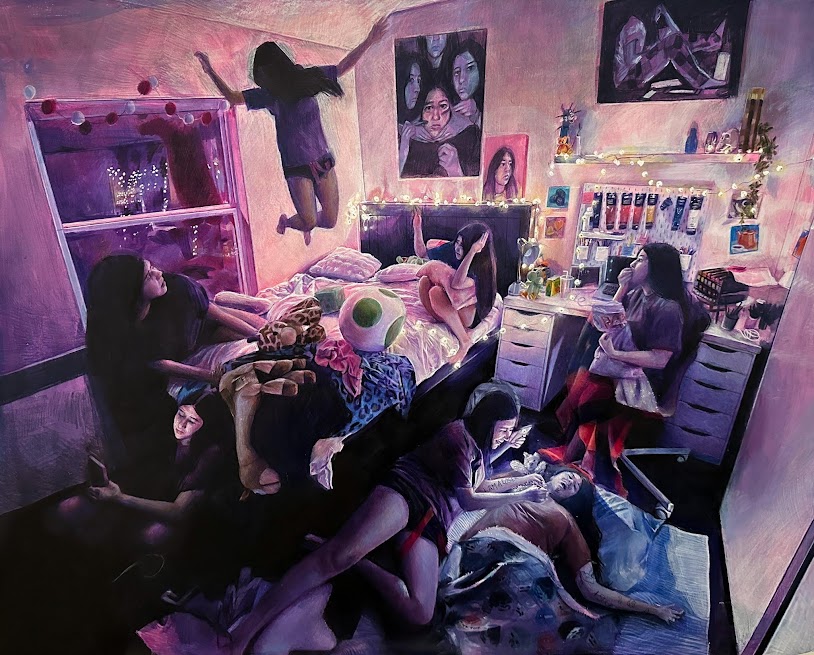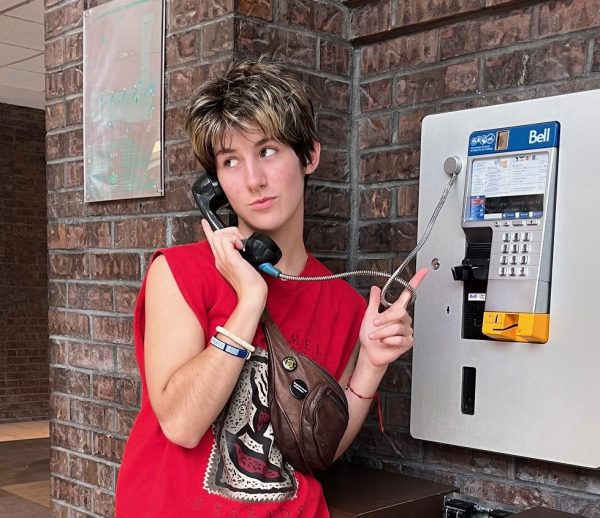The Internet, Identity, and the Aestheticization of Suffering
October 23, 2022
In today’s day and age, a girl is categorized not by body or personality, but rather by what she consumes.
Do you shop at Hot Topic or Brandy Melville? Are you “Alt”? “Coquette”? Or, would you rather make up your own niche micro-label to classify yourself? Self-discovery is out. It’s time to realize your identity through TikTok trends and Pinterest boards.
One of the most quintessentially teenage experiences is that of feeling misunderstood. In ten or fifteen years you’ll be told, and believe, that you were just being dramatic. You were angsty, and drowning in a sea of finding yourself. And for many ex-teenagers, that’s true. But what about those of use who grew up (and are still growing up) on the internet 24/7?
We aren’t too different from teenagers two centuries ago, actually. Except instead of finding our identity through introspection and passion, we latch on to whatever labels or trends we see and want to resonate with. Don’t know who you are? No problem; pick a favorite color and a Mitski lyric and we can tell you all of your fears, aspirations, and style of dress.
Perhaps this all has risen out of fear. We are afraid of not knowing—another phenomenon that is consistent with all humans, transcendent of time and place. Everything from religion to Google has been birthed out of a need to know. To understand. I need to identify myself by the complex female characters I idolize (maybe too much). Otherwise, I’ll have no idea where I fall in the world. For people who have no sense of self, the internet is a sweet way for them to pick out a persona and carry it into real life. They might have to deny their true feelings or desires to stick to this persona, but at least they have a word to call themselves.
With this comes a thing I like to call the aestheticization of suffering. You see, as we continue to identify ourselves this way, all of our struggles become fun character quirks. Those who don’t suffer from certain disorders may even adopt them or pretend to suffer because it has been deemed “cool” by the internet gods. Your pain makes you interesting; you shouldn’t seek help, you should broadcast it online for everyone to see. That is the mindset many teenagers have nowadays: happy people are boring. It’s cooler to be a “manic pixie dream girl” or “in your Fleabag era.” You can’t just be angry, your emotions have to be categorized as “feminine rage” in the caption of a 12-picture slideshow set to Fiona Apple’s “Under the Table” (which, by the way, is a fantastic song.)
Further, what effect does this all have on the people actually suffering? The realities of mental illness get washed away under a sea of TikTok-ified depression that has been diluted and made palatable for the general public. When someone claims to be depressed, they risk getting told they’re faking it. They want attention. They’re just hearing about vague symptoms and baselessly self-diagnosing. It’s a slippery slope for anyone trying to seek help, and an even slipperier one for those trying to honestly talk about mental illness or don’t have the means to get professionally diagnosed. They will almost always be met with harshness and disgust for showcasing the real effects of mental illness, whereas others are praised and joked with for saying things like “oh-em-gee, that one book out of place drives my OCD crazy.” The general public doesn’t want to know about all of your struggles unless you water them down and/or lie.
The other day I saw a tweet in which the poster almost bragged about how even their therapist couldn’t help them. I was appalled at the idea that someone wouldn’t be alarmed at that or would try to avoid getting better, but I can think of two reasons why they acted so smug: first, again, it’s cool to be depressed. Second, it’s easier to be stagnant than to try to get better. They weren’t upset that they couldn’t be helped. They were proud, and chose to share with the world how well they had defeated their therapist.
Of course, this doesn’t account for every corner of the internet. Lately, I have been seeing much more positive, “anti-nihilist” content online surrounding a love for life. It’s a beautiful breath of autumn air amongst all of this pollution. But I also must wonder, why do people have to wait for TikTok to tell them it’s cool to be happy? Why is that the catalyst to getting better? Why don’t we want to change for ourselves? And what’s more, are we actually getting better if it’s just to stay on-trend? At what point do we draw the line against consumption and start taking care of ourselves?
Sometimes I fear that our rate of consumption is only going to get faster. That everyone whose struggles were suddenly picked up by the trending tidal wave is going to get cast off into oblivion, and we are just going to be more obsessed with more disturbing corners of life for less time. For some, this way of thinking has become a coping mechanism. You have to be able to joke about your trauma to heal. To that point, I raise you this: if you turn your trauma into a joke, into a fifteen-second viral video, does that not diminish its gravity? Can you really take your healing seriously if you treat it like an internet meme?
To those of us that used, or still use, self-deprecating humor as a “coping mechanism,” I assure you that treating your own worth like a comedy bit will only exacerbate your state. Your brain learns over time that your tragedies are nothing more than a means of entertaining others. That is not healing. Similarly, desperately labeling yourself is not self-discovery. You can’t buy individuality in a thrift store, and you aren’t going to become more lovable by copying everything you see online. If I could be a trendsetter, I wouldn’t promote anything but silence.
Admittedly, though, I won’t ever be better than anyone else. When I go out with friends, I feel the itching, scratching urge to document everything with my phone. Less of a way of showing off, I tell myself, more of a way of saying I was here. I did this. I existed. But I know I’ll just end up turning all of those dew-glistening, warm weekends into 1:1-aspect-ratio Instagram posts.
I don’t think the cure to this is to just stop using our phones. It’s unrealistic, especially for teenagers. Yes, I am watching the destruction of a generation, but “unplugging” isn’t going to fix that. So, to be very clear, I’m not against the internet. I’m not telling everyone to throw out their phones and set the trash can on fire. The internet has caused me to make some of my closest friends in my life, to communicate, to learn, to laugh. It’s an immeasurably powerful tool. This isn’t a diss against the internet, just maybe the way we use it.
When we tell ourselves to stop caring about things as soon as they’re out of style, we miss out. Our eyes race to stick to the brightest flashing images, forgetting how nice it can be to spend months on just one thing. We forget how to focus. There is no passion in our minute-obsessions, because there’s no time for us to learn about what we speak so devotedly about. It’s all fabricated. We must regain our ability to care, to love. For some of us, that is only considered when in an online space; we don’t know how to exist in the real world anymore, if we even knew in the first place. But there is hope.
My advice is this: do things without needing to tell anyone. For the record, I don’t think the unplugging method is completely baseless. You will feel more present without your phone, but for the first few times, you will be bored and restless. It takes time, but the world will start to have a shine to it again. Spend time with those around you as much as possible. Go to fairs. Or just in the backyard. Sit down and write about what you see. There is at least one thing in the world for you to be passionate about and focus on. Don’t assume that because you see something every day, it’s mundane.
I’ve been realizing how much I miss reading. Sitting down and actually having the attention to read without breaks. Someday maybe I will be able to do so again, and stick to my promise of uninstalling all of my social media. For now, I’ll just keep writing. Keep spending time with my friends, and appreciating their little idiosyncrasies. I go on walks and stare at the veins on leaves, wondering how every single one is so different. I make mixtapes, the old-school ones out of cassette tapes, and even if these things are nerdy or small, they make me feel real.
Someday I will plant a garden of sunflowers, and when it blooms, I will have proof that I existed without needing to take a picture with my phone. Remember that there is an entire world out there, and plenty of time for you to find your real home in it.





















